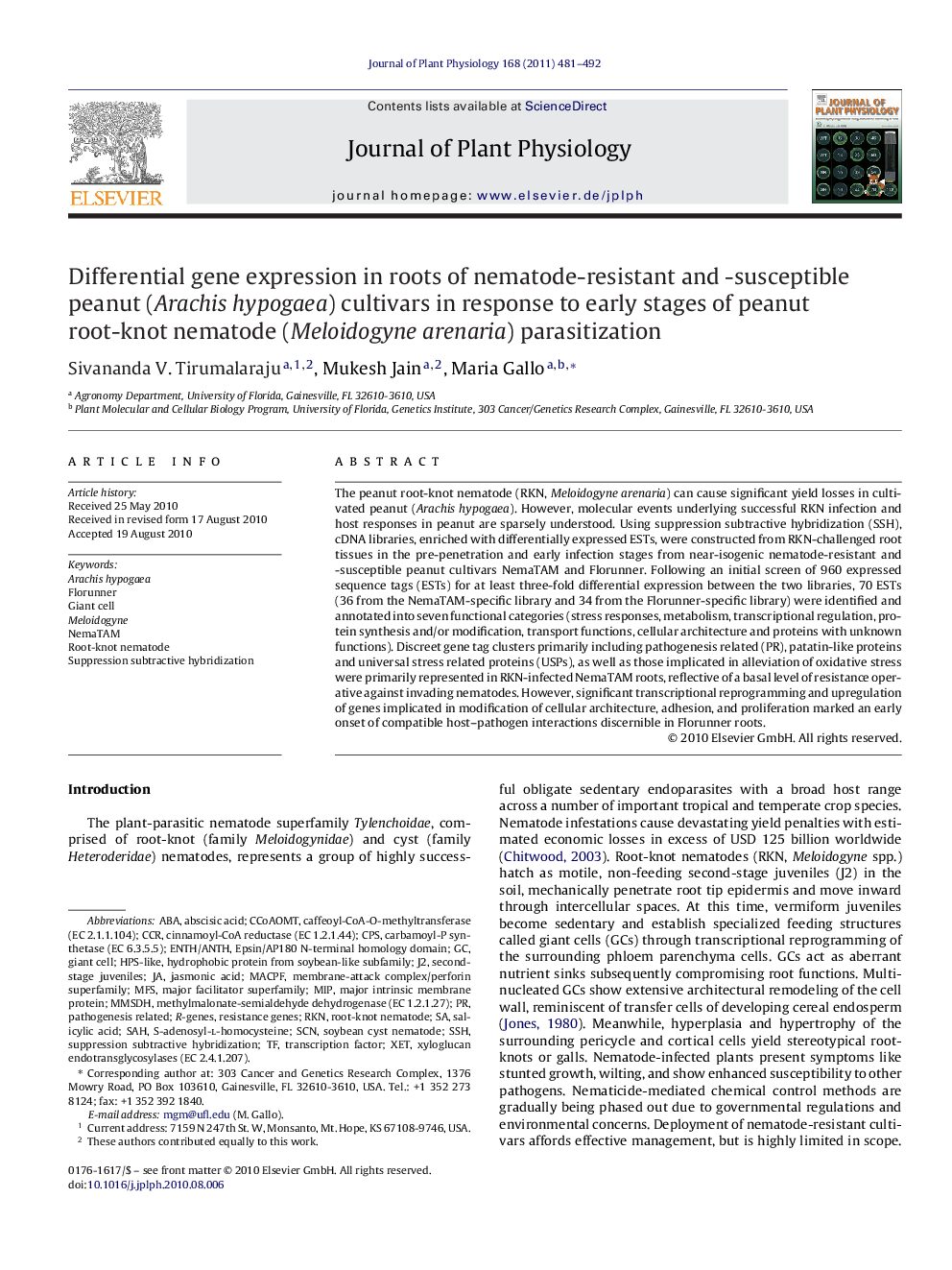| Article ID | Journal | Published Year | Pages | File Type |
|---|---|---|---|---|
| 2056811 | Journal of Plant Physiology | 2011 | 12 Pages |
The peanut root-knot nematode (RKN, Meloidogyne arenaria) can cause significant yield losses in cultivated peanut (Arachis hypogaea). However, molecular events underlying successful RKN infection and host responses in peanut are sparsely understood. Using suppression subtractive hybridization (SSH), cDNA libraries, enriched with differentially expressed ESTs, were constructed from RKN-challenged root tissues in the pre-penetration and early infection stages from near-isogenic nematode-resistant and -susceptible peanut cultivars NemaTAM and Florunner. Following an initial screen of 960 expressed sequence tags (ESTs) for at least three-fold differential expression between the two libraries, 70 ESTs (36 from the NemaTAM-specific library and 34 from the Florunner-specific library) were identified and annotated into seven functional categories (stress responses, metabolism, transcriptional regulation, protein synthesis and/or modification, transport functions, cellular architecture and proteins with unknown functions). Discreet gene tag clusters primarily including pathogenesis related (PR), patatin-like proteins and universal stress related proteins (USPs), as well as those implicated in alleviation of oxidative stress were primarily represented in RKN-infected NemaTAM roots, reflective of a basal level of resistance operative against invading nematodes. However, significant transcriptional reprogramming and upregulation of genes implicated in modification of cellular architecture, adhesion, and proliferation marked an early onset of compatible host–pathogen interactions discernible in Florunner roots.
